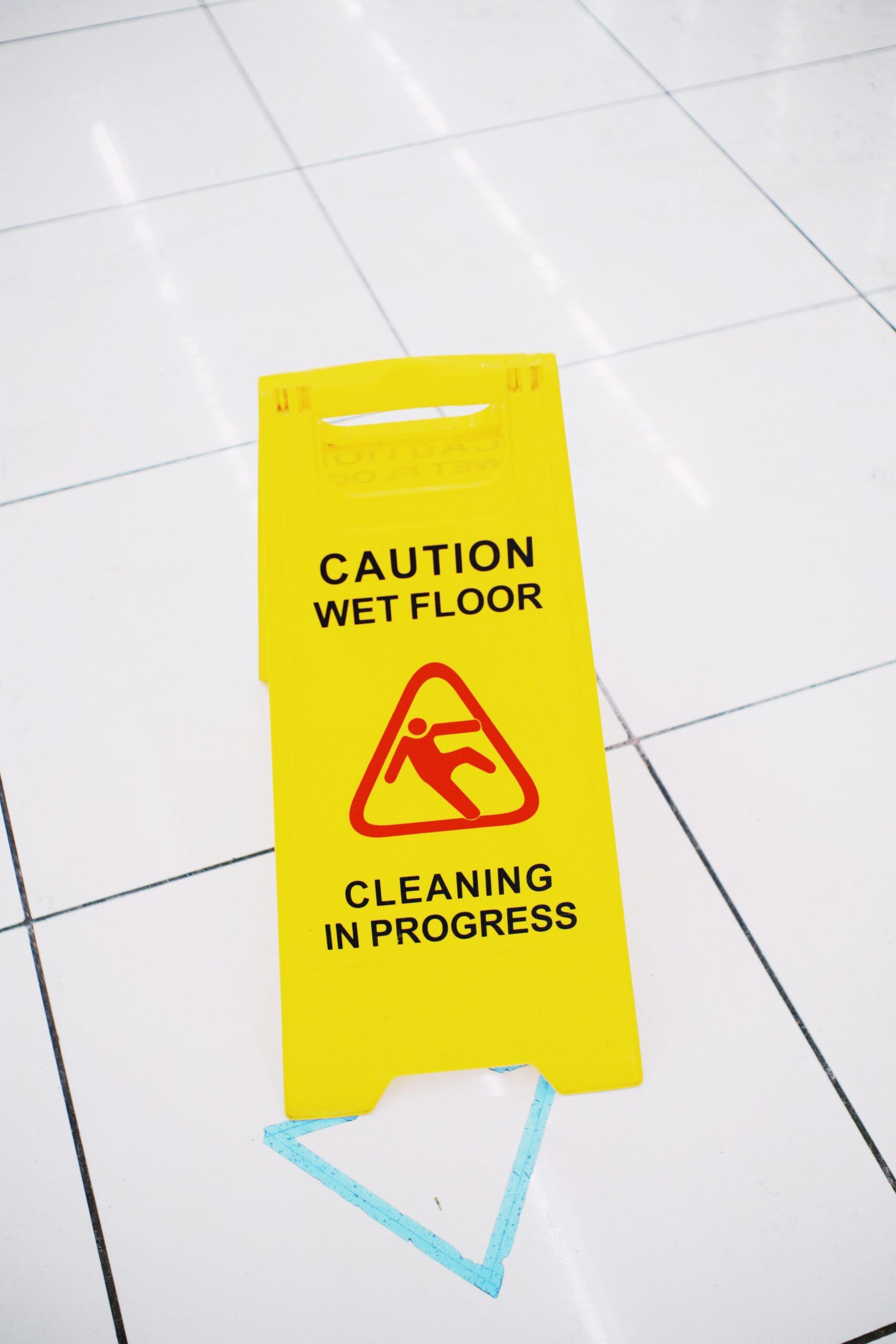Personal Injury Lawyers in Mobile, Alabama With Over 50 Years of Combined Experience
We are Mobile personal injury lawyers with deep roots in the community since 2002. We fight for our clients to obtain meaningful compensation and help families recover physically and financially. As a top personal injury law firm in Mobile, Alabama, we have recovered millions of dollars for injury victims.

Serving Our Neighbors in Mobile with Aggressive Personal Injury Advocacy
Mobile, AL Personal Injury Lawyers Who Fight for the Compensation You Deserve with Dignity and Respect
After a serious accident, victims and their families often learn quickly that the insurance companies are big business. Far too often, the insurance providers treat the injured and their families as mere file numbers and seek every opportunity to deny or reduce their exposure to paying on claims.
At Steele Ritchie LLC, in West Mobile, Alabama, our personal injury lawyers believe that people who have suffered tremendous harm deserve to be treated with dignity. We do the hard work to fight for people in our community who have suffered injury due to the negligence of others. While maximizing compensation for our clients is important, our Mobile personal injury attorneys go the extra mile to represent our neighbors – fighting for justice every step of the way.
You deserve to work with lawyers who will treat you with respect. That is a hallmark of our Mobile personal injury law firm.

What Our Clients Say About Steele Ritchie LLC
At Steele Ritchie LLC, our clients consistently share positive feedback about the attentive and personalized legal support they receive from our personal injury law firm in Mobile, AL. With a deep commitment to securing the best outcomes for each client, our experienced attorneys work tirelessly to understand every detail of your personal injury case, ensuring a strategic approach tailored to your unique needs. From initial consultations through to final settlements, we maintain open communication, keeping our clients informed and confident throughout the entire legal process. Many clients commend our dedication to maximizing compensation for medical expenses, lost wages, and pain and suffering, making us a trusted choice for personal injury representation in Mobile.
Our Mobile-based personal injury law firm has helped numerous clients achieve favorable outcomes in cases ranging from car accidents to workplace injuries and wrongful death claims. The community has recognized our compassionate approach and fierce advocacy in dealing with insurance companies and opposing parties, aiming to protect our clients’ rights and financial well-being. Testimonials highlight not only our legal expertise but also our genuine concern for each client’s recovery and future. We take pride in being a top-rated personal injury firm in Mobile, AL, dedicated to securing justice and peace of mind for our clients during challenging times.
Why Choose Our Personal Injury Law Firm in Mobile, Alabama?
Looking for a reliable personal injury law firm in Mobile? Our Mobile personal injury attorneys and legal staff share a common life goal and passion to pursue justice for all. We provide the highest quality representation for personal injury victims and their families. Our personal injury law firm adheres to important principles, including:
Meet Our Mobile Personal Injury Attorneys
Welcome to Steele Ritchie LLC, your trusted personal injury attorneys in Mobile, Alabama. For over 20 years, our dedicated team, deeply rooted in the Mobile community, has leveraged extensive knowledge of personal injury law to advocate for the rights of our clients. From slip-and-fall incidents to severe car accidents, our personal injury law firm is committed to guiding you personally through every stage of your case. Located in Tillman’s Corner, our office offers easy access without the hassle of parking or long walks. Click below to learn more about Jason and Allen, our experienced accident lawyers who are ready to assist you.

Jason Steele

Allen Ritchie
Frequently Asked Questions in Mobile, Alabama
Where is Steele Ritchie LLC located in Mobile?
Steele Ritchie LLC is conveniently located at 5560 Nevius Rd, Mobile, AL 36619 in Tillmans Corner. Our office is easily accessible from all parts of Mobile County, making it straightforward for local clients to visit us for consultations and meetings.
How much does a Mobile personal injury attorney cost?
The cost of legal representation in personal injury cases can differ based on the specifics of your situation. We recommend contacting Steele Ritchie LLC for a comprehensive discussion about your case, which allows us to provide a clear and fair evaluation of potential legal fees. We are dedicated to providing high-quality, accessible legal services to our clients, ensuring you receive the strongest support throughout your legal proceedings.
Is it even worth it to hire a Mobile personal injury lawyer?
Absolutely. Hiring an experienced personal injury lawyer like those at Steele Ritchie LLC can significantly impact the outcome of your case. Personal injury law is complex, involving numerous legal details that can be overwhelming for someone without legal expertise. Our attorneys, Jason and Allen, have the experience and knowledge to navigate these complexities and are dedicated to achieving the best possible outcome.
They will handle all legal aspects, allowing you to focus on your recovery.
What types of cases does Steele Ritchie LLC handle in Mobile, Alabama?
Steele Ritchie LLC specializes in a wide range of personal injury cases. These include car accidents, truck accidents, motorcycle accidents, slip-and-fall accidents, medical malpractice, workplace injuries, wrongful death, and more. We also have unique expertise in handling cases of nursing home abuse and termite damage claims.
What should I do if I’m involved in a car accident in Mobile, AL?
If you’re involved in a car accident, it’s crucial to first ensure that all parties involved are safe and to call for medical help if needed. Then, contact the police to file a report. Document the scene by taking photos and videos and exchanging information with the other driver. Even if you feel fine, it’s essential to see a doctor, as some injuries may not be immediately apparent. Finally, contact a personal injury attorney at Steele Ritchie LLC to discuss your case and ensure your rights are fully protected.
How long do I have to file a personal injury claim in Mobile, Alabama?
In Alabama, the statute of limitations for most personal injury claims is two years from the date of the incident. This means you have two years to file a lawsuit against the parties responsible for your injuries. It’s important to contact a personal injury lawyer as soon as possible to ensure your claim is filed within these time limits, as failing to do so can bar you from recovering any compensation.
Can Steele Ritchie LLC help if I’m not sure who is at fault in my accident?
Determining fault is a critical component of any personal injury claim and can sometimes be complicated. Our experienced attorneys can help investigate your case, gather evidence, and work with accident reconstruction experts, if necessary, to determine who is liable for your injuries. Understanding the nuances of Alabama’s comparative negligence rules, we can navigate through cases even when fault is initially unclear.
What can I expect during my free consultation at Steele Ritchie LLC in Mobile, Alabama?
During your free consultation, one of our personal injury lawyers will review the details of your case, answer any questions you have, and provide a clear outline of your legal options. This consultation is your opportunity to understand the potential of your case and how we can help you achieve the compensation you deserve without any obligation to hire us.
If you have more questions or need detailed guidance after an accident, please don’t hesitate to contact Steele Ritchie LLC. Our knowledgeable team is here to support and guide you through every step of your legal journey.
Contact Us For a Free Consultation Today
While this website provides general information, it does not constitute legal advice. The best way to get guidance on your specific legal issue is to contact a lawyer. To schedule a meeting with an attorney, please call the firm or complete the intake form.
Our Latest News
Check out some of our latest blog posts below.
















